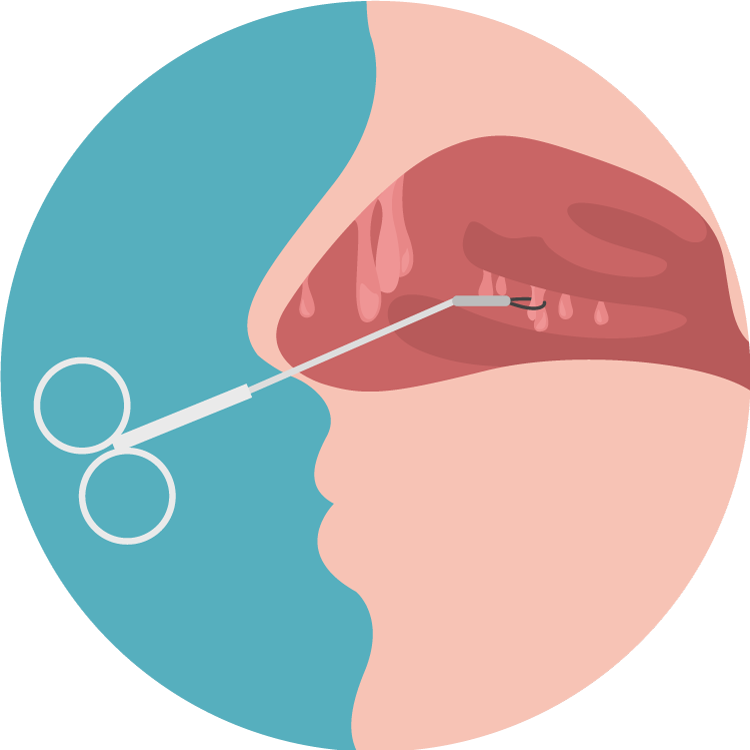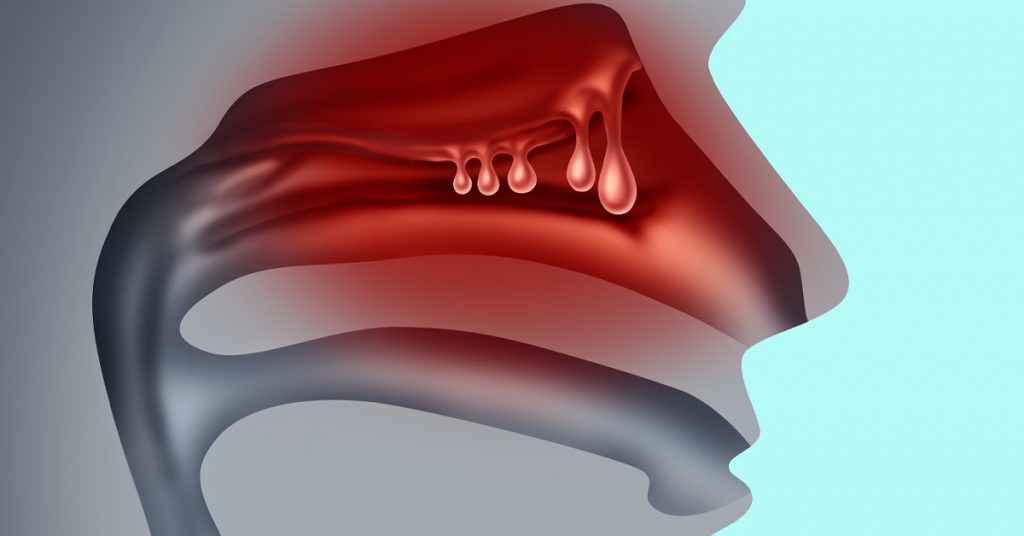Have you ever taken cold medication and felt absolutely no improvement? Do you feel like you’ve got a constant head cold that holds on no matter what you do? The culprit may be surprising.
What are nasal polyps?
A nasal polyp is a benign (non-cancerous) sac-like growth on the lining of the nose or sinuses. Polyps are often shaped like teardrops and can vary in size.
Small polyps often cause no symptoms and go completely undetected. Larger polyps and some that cluster together like grapes on a stem are more likely to cause symptoms. These often include:
- Blocked nose
- Runny nose
- A constant need to swallow (post-nasal drip)
- Reduced sense of smell or taste
- Loss of taste
- Nosebleeds
- Snoring
- Facial pain or pressure
- Pain in upper teeth
- Headache
Who gets nasal polyps?
Nasal polyps are most common in adults over 40. While there are many unknowns, there may be a connection between nasal polyps and long-term inflammation from allergies, asthma, or sinus infections. In addition, children with cystic fibrosis appear to develop nasal polyps at a higher rate.
How do I know if I have nasal polyps?
While you may be able to see a nasal polyp in some cases, most will need to be diagnosed by a physician. An accurate diagnosis requires a review of your medical history, a detailed discussion of your symptoms, an assessment of the nasal cavity with an endoscope (a narrow, flexible tube with a tiny camera and light), and the possible use of a CT scan to take detailed pictures inside your sinuses.
What treatment options are available for nasal polyps?

- Corticosteroid nasal sprays – are typically the first course of action to treat polyps. These nasal sprays reduce swelling and irritation and, over time, may shrink or eliminate nasal polyps.
- Oral steroids – may add a short-term course of oral steroids such as prednisone if nasal sprays alone aren’t working.
- Injectable steroids – in severe cases, corticosteroids may be injected.
- Antihistamines or antibiotics – can be used to treat allergies or reduce inflammation in the sinuses, especially underlying chronic infections that could be contributing to the development of nasal polyps.
- Biologics – a newer medication (dupilumab) given by injection that targets the underlying inflammation and shrinks nasal polyps.
- Surgery – outpatient surgery removes polyps when other treatments are ineffective. Surgery may include placing a tiny steroid-eluting stent that slowly dissolves away over time.
Note: Surgery can successfully remove nasal polyps and reduce symptoms. However, it is not uncommon for polyps to return despite surgery. For this reason, patients are encouraged to discuss the risks and benefits of all treatment options with their doctor.
When should I talk to an ENT?
If you experience ongoing symptoms described above, you should be evaluated for nasal polyps, even if you have previously had nasal polyp surgery. Call our office at 763-233-5755 to speak with one of our schedulers, or request an appointment online.
